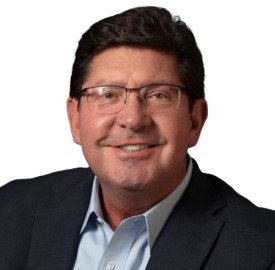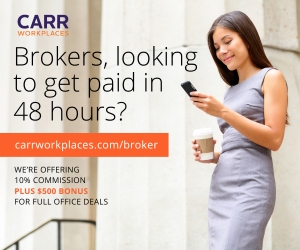
Today, you hear everywhere that “data is key.”
Amenity offerings are evolving rapidly, and new challenges are reshaping the real estate market. A real estate expert that can navigate this data-driven and tenant-oriented environment is essential. Paul Marko was recently appointed as principal of the South Florida Avison Young team, and he applied his 30 years of experience in office tenant representation, buyer broker services and portfolio administration to answer some of our questions about the South Florida and national commercial real estate markets.
Q: What are your thoughts on the national CRE market, in terms of trends and challenges during the current pandemic?
The multifamily, retail, and office commercial real estate sectors have been most affected by the pandemic and have had to pause and closely examine and re-evaluate the “what ifs” and “if, thens.” Industrial remains a market leader and has grown exponentially due to e-commerce and cold storage demand.
From an office standpoint, the unknown future impact of the pandemic has created an inflection point for the needs of tenants and end-users. Due to the pandemic, most companies and industries are uniquely facing impacts on workforce, workspace, culture, office schedules, and technology, all while navigating racial equality and political concerns in an election year. Therefore, commercial real estate professionals and landlords will have to place an emphasis on tenants shifting needs and respond with a customized approach.
It is important to note that remote working and full return to the office are not mutually exclusive. The current environment is affecting various businesses in vastly different ways. A partial return to the workplace with modified schedules, shift working, or agile workspaces is also being implemented. The safety and comfort of employees is paramount while allowing proximity for idea sharing and innovation to flourish.
Q: What would you say stands out about the South Florida office market?
South Florida is attractive to businesses for many reasons, including no state income tax and a low barrier to entry. Large developable tracts of land for new office development are scarce, but the region is ripe for redevelopment. This market is appealing to businesses looking to relocate and/or expand from out of state.
With the exception of Miami, which is a global city, the balance of South Florida is considered a secondary market. Our office market has been impacted, but not in the same way as primary markets like New York, Chicago, or Los Angeles. South Florida has shown resiliency.
With regards to the office market, I am seeing few new leases, and most office tenants, upon receiving notice of lease expiration, are requesting 12 to 18 month extensions. The landlord does not want the vacancy, and the tenant is not sure about a longer-term renewal. As long as the landlord can get lender approval, this extension seems like a good compromise and collaborative solution to the unknowns of the pandemic impacts currently on our South Florida business climate. As it relates to the office tenants, leases expire every day, leaving a tenant with three choices: renew, move, or buy.
Q: Where do you see it going in the future? Are there any safety measures and policies that you think might or should be adopted into best practices for commercial real estate going forward, beyond this pandemic?
Ongoing safety measures will include touchless entry points, more thorough sanitization processes, cleaner air filtration, and continued social distancing. The pandemic has forced us to be mindful of germ transfer, which is a positive. The question is whether our vigilance will lessen once there is a vaccine or with the simple passage of time.
I have represented a national law firm for 25 years. Like most firms, the objective was to have the attorneys in individual offices. Once the pandemic hit, and everyone was forced to work from home, the firm realized that the attorneys could in fact be productive. There was now a good argument for flexible schedules and shared offices. Further, with appropriate surface sanitization service, and collaborative scheduling, they could have multiple attorneys share one office. For this firm, this has reduced the overall required office space by 50-60%.
Currently, we are seeing a reduction in office densities, but we believe it is temporary. A trend that may last for the long-term is tenants adopting agile and flexible workspaces and technology enhanced furniture that can be moved and used in different ways.
Q: In your experience, how has the evolution of online marketing affected the commercial real estate industry?
The printed format for marketing purposes is obsolete. Dynamic, real-time, interactive materials with data-driven insights to help clients achieve better outcomes are what the future holds.
Q: Could you provide us some background on what attracted you to a career in commercial real estate?
I started my commercial real estate career as an appraiser in the late 1980s. I was a MAI candidate and Florida State Certified General Licensed Appraiser. I loved interpreting the data and formulating an opinion of market value. It was advisory and consultative, which fits my personality well. My appraisal experience is a unique credential in the commercial real estate industry which contributes to my value proposition. After about five years in appraisal, I had an opportunity to move into office leasing and brokerage. I was the broker for an existing 500,000 SF office development that IBM vacated in Boca Raton, Florida. I interacted with South Florida’s top tenant representative brokers and realized office tenant representation was what I wanted to do. Over the years, I have been fortunate to be one of South Florida’s most successful office tenant representatives, office buyer broker representatives, and small-mid cap corporate portfolio account representatives. My career took me from Miami-based Codina Realty ONCOR International, CBRE, Stiles Corporation, and now Avison Young.
Avison Young is a great match for my skill set; its recent expansion of consulting across the Americas and investment in technology and innovation will enhance my ability to use data and analytics to fuel insights for the companies and industries I serve. The firm’s culture of collaboration, integrated services, and a client-centric approach are consistent with my business approach.
Q: Do you have any personal experience advice that you would impart as an absolute must for those looking to get into the CRE industry?
The absolute “must haves” for this industry are passion and patience. Commercial real estate is fluid and the ever-changing needs of the participants keeps me engaged. Years of experience helped me realize my passion is based in curiosity. I feel blessed to have found that. Many people never find their career passion. Curiosity made me a good appraiser and it is critical for my role as an office tenant representative and buyer broker. I am always looking for a value-add solution for my clients.
Q: Any other insights that you would like to share?
While I see technology and digitization of services shaping the future of commercial real estate, I also see a real need to return to community and customized strategy. We must intentionally seek ways for both to meet.
Source: Commercial Cafe















